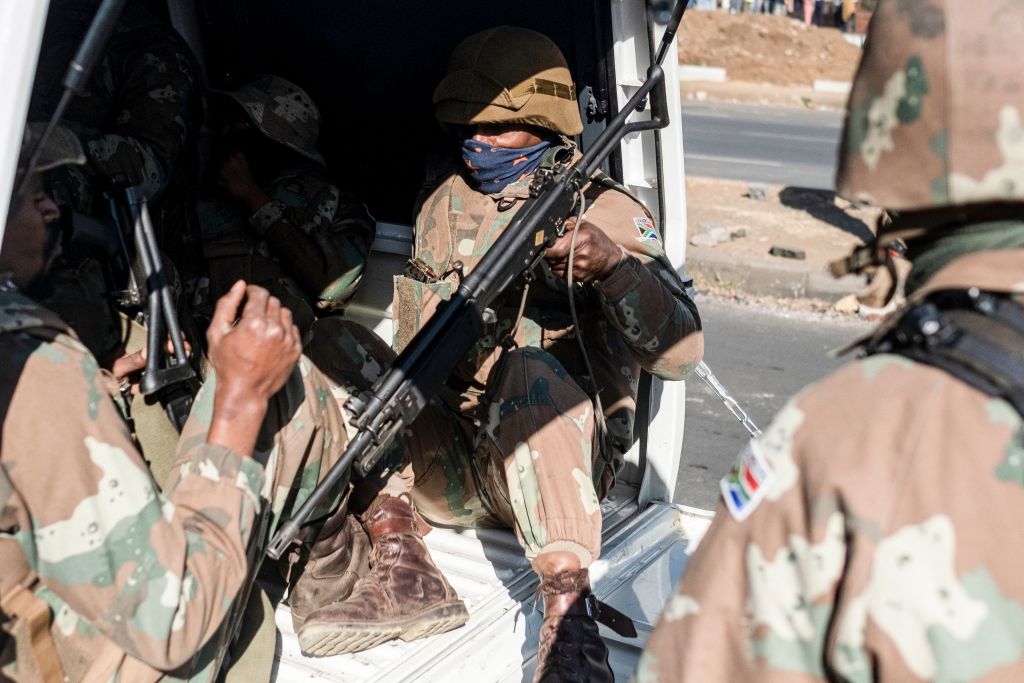ADF STAFF
South African children as young as 11 are being radicalized and recruited to commit terror acts, according to an Institute for Security Studies expert who spoke at the Border Management Conference and Expo in Pretoria in November.
Young people in areas such as the East Rand, Hillbrow, Mayfair and Soweto are being radicalized in madrassas, which are religious schools or colleges that teach Islamic subjects. Young people are also increasingly targeted by terror groups through social media.
According to the institute, the risk has not been addressed effectively due to a lack of intelligence capacity. “This is ongoing and sustained,” the institute’s Willem Els said in a Protection Web report. “If we don’t deal with this in its early stages, it might get out of hand.”
The radicalization of young people is fueling the three main terrorism threats the country faces, which are Islamist terrorism, right-wing extremist groups and South Africa’s emergence as a stronghold for the financing of the Islamic State group and other terror organizations. Els said right-wing extremist groups pose a lesser threat than the others because those groups have been monitored effectively.
Terror Financing Hub
In 2023, the Financial Action Task Force “gray listed” South Africa because it was not effectively addressing the threat of money laundering and terror funding. Gray listing is when the task force puts a country under stricter economic monitoring and regulation.
“It is now internationally accepted that we are a hub,” said South African anti-terrorism expert Jasmine Opperman, in a joint report by Rédaction Africanews and Agence France-Presse. She added that South Africa is now a “hunting ground” for money transfers by terrorists.
South Africa is investigating about 20 cases of terror funding as a means to get off the gray list and may come off it after another audit next year, according to Protection Web.
“Why is South Africa attractive for terror funding?” Els said at the conference. “Infrastructure and an advanced banking system make moving funds easy.”
Els added that South Africa’s high crime rate makes it easy to generate illicit funding while high levels of corruption enable criminals to operate with impunity. Terror groups commonly work closely with organized crime syndicates, he added. Much of the money leaves South Africa for Somalia, the Democratic Republic of Congo and Mozambique.
Els urged South Africa to develop a proactive rather than reactive approach to terrorism and said that terror funding and money laundering should be continuously targeted. He said authorities should take a “more holistic approach” to the South African Counter-Terrorism Strategy, which is classified. He also urged more countries to implement the Southern African Development Community Transnational Organized Crime Strategy and its Counter-Terrorism Strategy.
Porous Borders
Exacerbating the country’s terror threats are its porous borders guarded by an understaffed and underfunded Border Management Authority (BMA), which was launched in 2023. Home Affairs Minister Leon Schreiber said in a November defenceWeb report that the authority currently needs to fill more than 3,200 positions and faces a three-year medium-term budget shortfall of R4.3 billion ($240,477,500).
Particularly hazardous is South Africa’s border with Mozambique, where political unrest and the seven-year insurgency in the Cabo Delgado province make it a recruitment hub for terrorists and a setting for criminal activity. The Southern African Development Community Mission in Mozambique withdrew in July 2024 to focus on the Democratic Republic of the Congo, leaving a security vacuum.
Despite its shortfalls, the authority has had recent success tackling human trafficking cells. Authority Commissioner Michael Masiapato said in a mid-December statement that recent operations at the Beitbridge and Lebombo entry points “saw significant breakthroughs in disrupting illegal activities, including human and child smuggling.”
On Dec. 6, BMA guards intercepted a taxi being used in an attempt to smuggle 14 undocumented Mozambican children aged 4 to 16 into South Africa through Lebombo. Authorities arrested the driver and handed the children over to the Department of Social Development.
The next day at Beitbridge, eight Bangladeshis got out of a taxi on the Zimbabwe side of the border and attempted to enter South Africa without valid travel documents. BMA guards intercepted them on a routine patrol.
“These incidents highlight the critical role border guards play in safeguarding vulnerable individuals and preventing the exploitation of our borders by criminal syndicates,” Masiapato said in the statement. “The BMA remains steadfast in its mission to combat illegal activities and protect the sovereignty of South Africa.”

